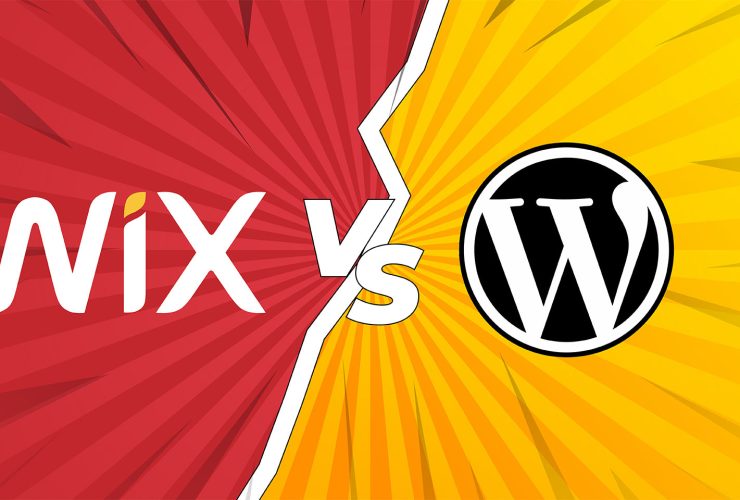Website Translation in WordPress: A Complete Guide
Table of Contents
- How to Translate WordPress Websites Using AI?
- What is AI Translation?
- How Translation Works for WordPress
- Benefits of Using AI for WordPress Website Translation
- Translating a Website Using ChatGPT
- Translating a WordPress Website with Google Translate
- Translating a WordPress Website with Google Translate
- Summing Up
Website Translation in WordPress: A Complete Guide
Over 43% of all websites over the internet are powered by WordPress and many of these websites serve non-English speaking users. Thanks to AI, creating multilingual websites on WordPress is now simpler than ever before.
While the benefits of using Artificial intelligence for businesses are widely known, the use of AI language models for website translations seems to be a new advancement. Businesses today are integrating WordPress themes and plugins that use AI tools to translate their websites, thus making it easier for them to cater to multilingual users across the globe.
This blog will talk about AI translations for WordPress and will mention some plugins that one can seamlessly integrate to their WP websites to make them multilingual.
But let us first talk about what AI translation is and why it has become the need of the hour:
Simply put, AI translation uses machine learning and natural language processing to translate speech or text from one language to another. Several popular apps like Duolingo, Google Home and Microsoft Translator are using this technology. Not just that, popular tools like Google Lens also use AI to harness the phone camera of the user and translate the image or the visible text through the viewfinder and provides real time translation experience.
AI can be seen augmenting and even substituting the need for humanized translations across digital platforms. While tools like DeepL are widely popular for their translation capacities, some users also use ChatGPT and Google Translate to translate their text using robust AI.
While WordPress does not come with any built-in translation tools, using translation plugins and themes can literally help users make their websites in any language. These plugins not only bring additional functionality to the website but also improve its functionality and accessibility.
More and more translation plugins in WordPress are now using AI to improve the efficacy of their translation process. Website builders can simply add a multilingual plugin that uses strong language learning models and machine learning, to translate their WordPress websites more accurately and efficiently.
Also read: How to Choose Perfect Plugins for a Successful WordPress Project?
Let us now talk about some benefits of using AI to translate websites:
While there are many compelling benefits of website translations using AI, one prominent benefit is cost efficiency. While a human translator may charge a hefty sum to manually translate all content across the website, an AI tool can offer a satisfactory translation at a very minimal cost.
Here are some other benefits:
Efficiency and speed
AI translations can be done in seconds, whereas hiring a human translator for website translation may take days.
Consistency and scalability
AI tools can align well with an organization’s brand voice and identity, that can be followed throughout the translation process. This helps website visitors comprehend the brand voice of a business.
Use of machine learning
AI is constantly learning and improving at a pace that is faster than humans. Website developers can thus leverage the latest algorithms to translate or transform the text or voice. This can also make the website more appealing for the website visitors.
Make faster revisions
Any revisions required can be made faster as there is no need to send the content back and forth to the translator. This is particularly useful for time-sensitive projects as it has no content turnarounds.
Use ChatGPT, a language tool created by OpenAI, to manually translate WordPress sites. Here’s a step-by-step guide one can follow:
Prepare the content
First, gather all the website information that needs translation.
Access ChatGPT
One can use the Text Completion feature of GPT-3 in the chat interface. For this, just select the text, click “Translate,” and wait for the translation to complete or enter all the text into the ChatGPT interface and give it a prompt to translate the provided text in the desired language.
Copy the text
Next, copy and paste the translated text into the WordPress Editor. Take the time to manually insert these translations to WordPress pages or posts.
Review and refine
Ensure that the translations are accurate and fit well within the context.
Google Translate offers a feature to automatically translate a WordPress website. Here’s how to set it up:
Install plugin
Go to the WordPress plugin repository and navigate to find the “Google Language Translator.” Next download and install this plugin by clicking on ‘Install Now’, and then ‘Activate’.
Configure settings
Go to Settings > Google Language Translator. Then select the default language and translation language.
Enable translation
Activate automatic translation for all content posted on the website.
Customize display
Users can also personalize the placement and appearance of the language switcher on the site.
Here are some special WordPress Plugins that come with strong translation capacities, allowing its users to build multilingual websites. Given below are some of the best AI-driven WordPress plugins for translating a website:
WPML (WordPress Multilingual Plugin)
WPML stands out as a top choice for WordPress translation plugins. It’s known for its intuitive interface, making it easy for users to handle. Supported by various AI engines, WPML helps to run a multilingual WordPress website with just a single installation by consistently delivering high-quality translations.
Weglot
Weglot is praised for its simplicity and effectiveness in translating WordPress sites into multiple languages using AI. One can translate their website in more than 100 languages, making them multilingual in minutes. This tool requires no coding and ensures quality translations automatically, while also allowing manual adjustments when needed.
DeepL
This plugin enables users to use machine translation services from the DeepL platform. It employs sophisticated algorithms to generate excellent translations across different languages. To translate text, simply highlight it and choose the “Translate with DeepL” option. Moreover, it incorporates a proprietary technology known as “neural machine translation,” which enhances accuracy by analyzing and comprehending text context.
TranslatePress
TranslatePress integrates Google Translate, DeepL and Microsoft Translator, offering automated translations directly within WordPress. It supports 132 language translations that allows a website to truly go global. Its live preview feature allows users to see translations in real-time as they edit, enhancing its efficiency.
GTranslate
GTranslate uses Google Translate to provide multilingual support for WordPress websites. It can translate a website in 133 different languages and is known for its cost-effectiveness. GTranslate seamlessly integrates with WordPress websites.
Summing Up
Multilingual websites can help businesses widen their reach. Not just this, incorporating translation plugins can also optimize the websites for search engines and boost their rankings. If you are looking to develop a multilingual website, our team at ABK can help you choose the best translation plugin for your business website. Our website developers have years of expertise in creating multilingual websites, tailored to suit the requirements of different businesses. For more details, reach out to our ABK team at connect@abkdigital.com or call us at +1 980 347 3323.



